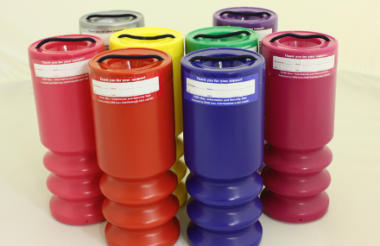Women are more likely to donate to charity and support local causes, a survey commissioned by the Institute of Fundraising has found.
The survey, which was undertaken by YouGov, found that 54 per cent of women had given to a charity collection in the past 12 months, compared to 40 per cent of men.
Over 2,000 people were surveyed, with other findings including 35 per cent of women saying the spoke to friends about the charity or cause after donating, compared with just 22 per cent of men.
Women are also more likely to have supported a local cause or charity, with 51 per cent of women reporting this, compared to 36 per cent of men.
This survey forms part of a series commissioned by the IoF to find out who, how and why people choose to support Britain’s charities. This one looks at the reported differences between women and men.
Daniel Fluskey, head of policy and research at the IoF, said: “This research highlights the importance of fundraising for charities and the wider positive effect giving to charity has on an individual and society more widely. But within this we also see interesting differences in the way that women and men donate to and support the causes that they care about.
“The jury is out on why women say that they do more to support charities and are more likely to support local causes than men. There is an opportunity here to encourage more men to step forward and support charitable causes. Charity fundraisers will want to take note of these differences.”
The survey found that when asked to describe the type of charity they generally support, men were more likely than women to say that they mainly donate to large, national organisations – 22 per cent of men compared to 15 per cent of women. While women are more likely to say they support a range of different charities, from national and international organisations through to small, local charities – 55 per cent of women compared to 42 per cent of men.
Motivations
Women are more likely than men to say they made a donation because they had read something or seen a story in the news – 10 per cent compared to 5 per cent. They are also more likely to identify that a charity has helped someone they know as a motive for their donation.
Related articles











